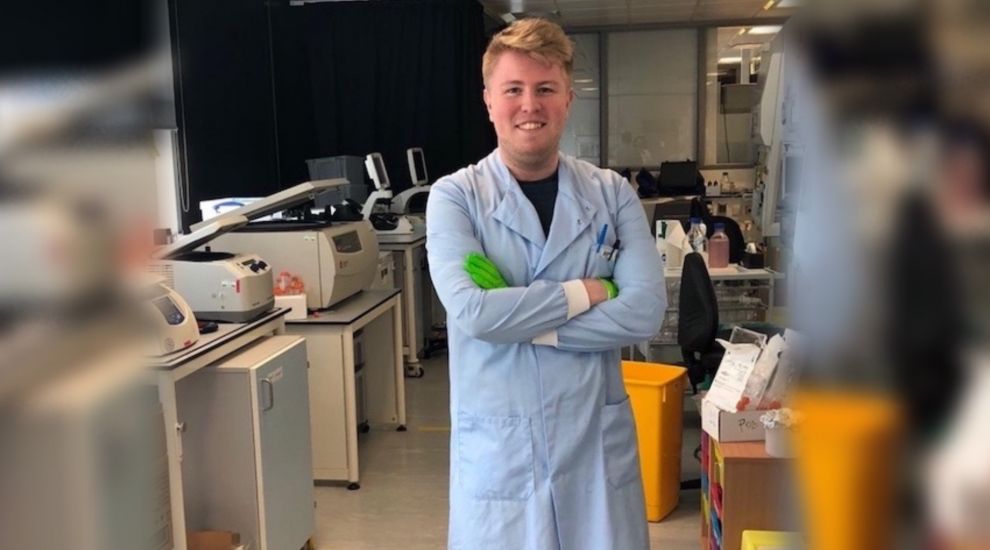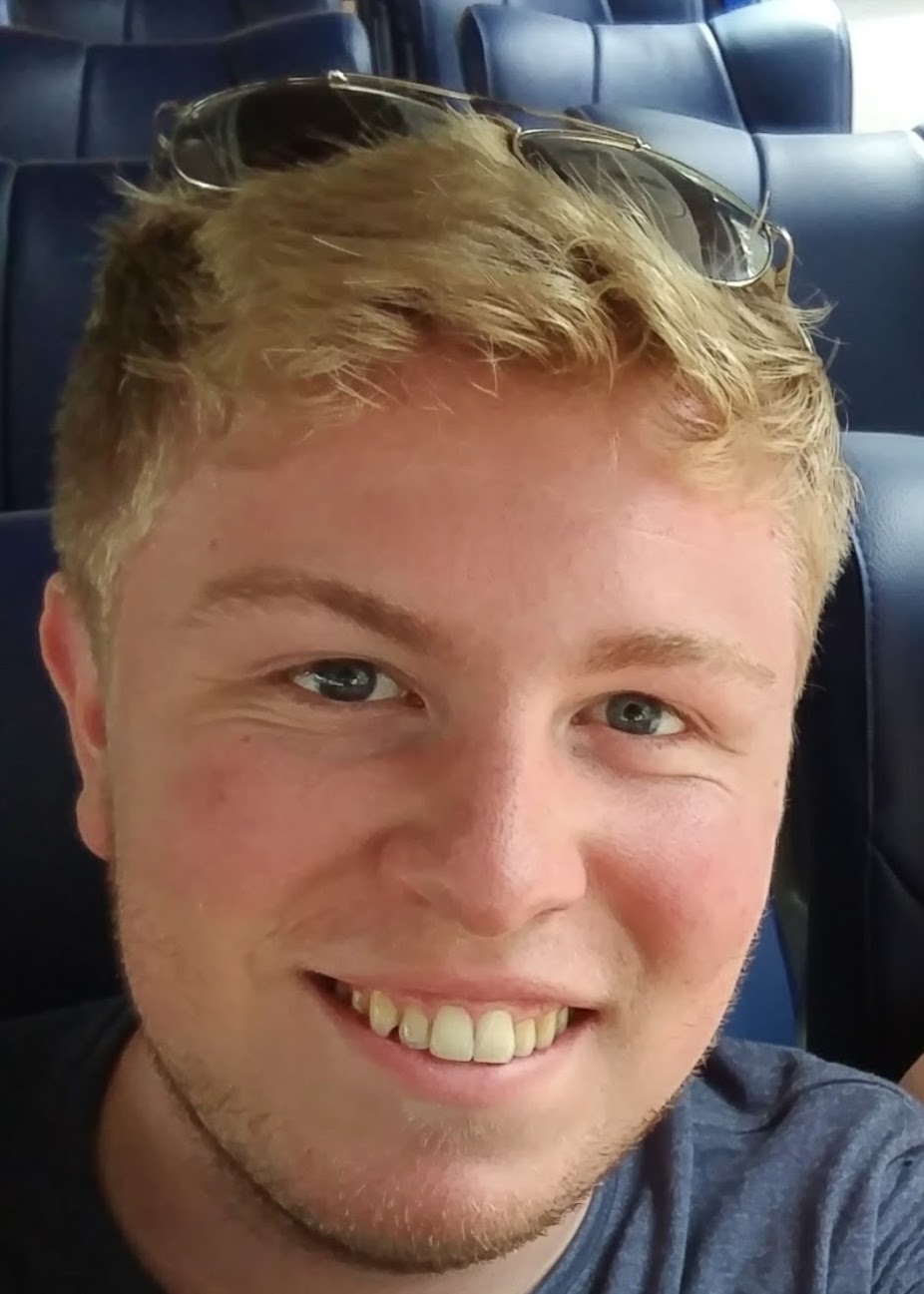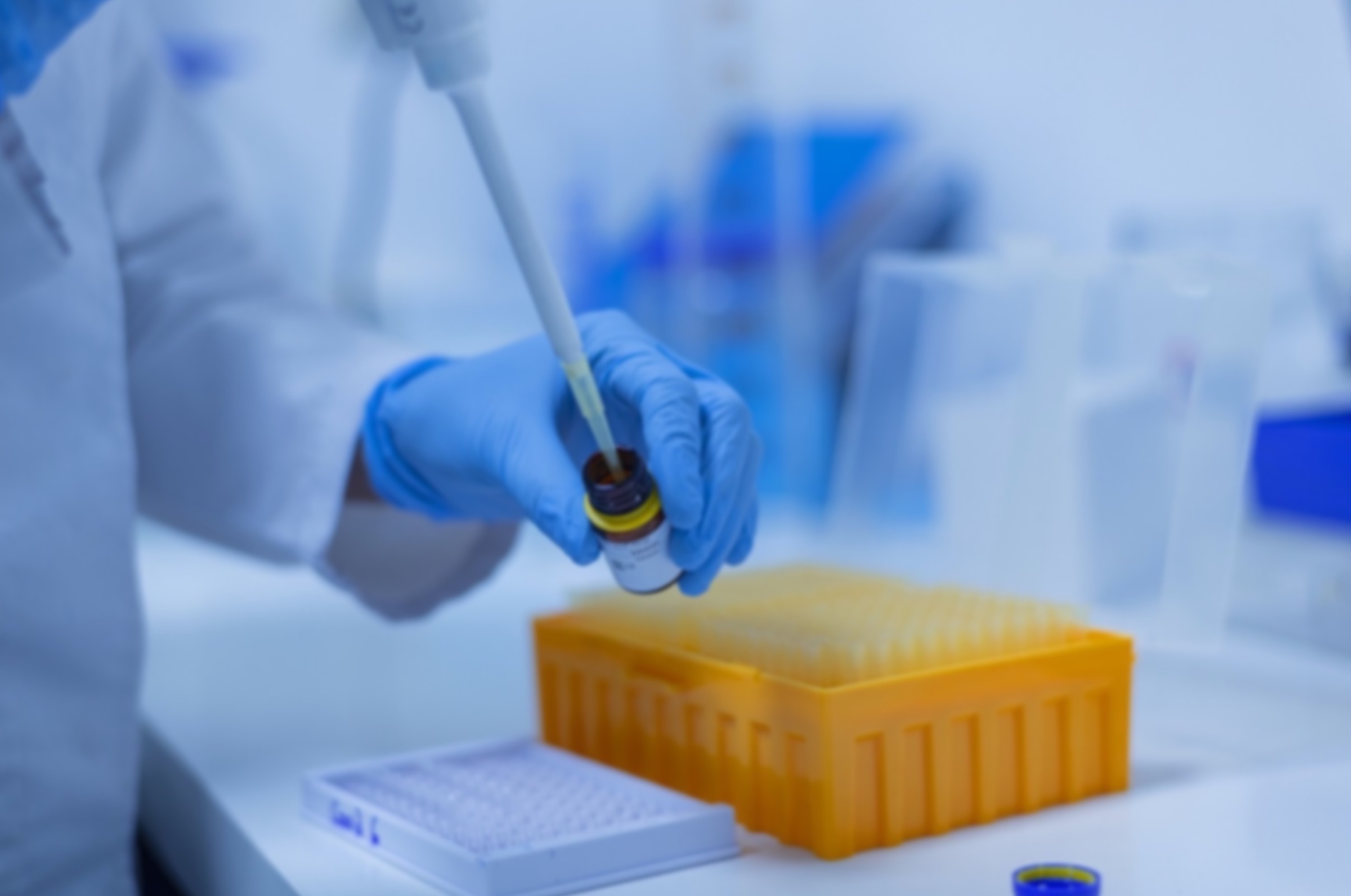


A Jersey-born PhD student has opened up about how his fascination for biology stemming from an operation his mum had to go through eventually led him to working on the cutting edge of prostate cancer research.
Alexander Du Feu is in Jersey this week to share how a love of biology and the sciences can lead to a wide variety of careers with students from his former school, Victoria College.
Alex's interest in biology began at a young age in the hospital, after his mother was diagnosed with a non-cancerous growth, acoustic neuroma.
"I really got interested in what was going on, because I was quite young and I didn't really understand the full repercussions of it," he said.
"I remember just asking the surgeon all these questions and just getting interested in biology that way."

Pictured: Alex had initially assumed he would have a more clinically led career, but soon found his passion was for research.
Having taken biology during his time at Victoria College, Alex assumed he would go onto be a doctor or work in medicine, explaining that the consensus on the island at the time seemed to be: "If you like biology, if you like chemistry, then you're doing medicine, that's the career trajectory for you."
But whilst he was interested in biology, it wasn't the practice of medicine that interested Alex as much as how it actually worked.
Nonetheless, he set off to Cardiff University to do Biomedical Science, with an eye to moving into medicine.
When he started at university, though, he realised that his true passion lay with research.

Pictured: Alex is returning to Victoria College this week to talk to students about potential opportunities in research.
Having done two years of research outside of Cardiff as part of his degree, including one year in a hospital and one year at the European Cancer Stem Cell Research Institute, Alex moved to Manchester to continue his research into a PhD.
Based above Europe's largest single site cancer centre, the Christie Hospital, Alex has been working on his PhD as part of a team co-funded by Cancer Research UK, which studies prostate cancer and potential therapeutic treatment for it.
Being the most common malignancy in Western men, Alex wanted to emphasise that the current situation for men with the condition isn't always as dire as it may seem, and that the survival percentage after five years for men who have the disease locally confined to the prostate can go above 95%.
Where Alex's group focuses is on is those who have systemic disease, which has spread around the body, and is "very difficult" to treat once no longer localised.
Often patients will have therapy that will work for two or three years, but then it will come back in an aggressive disease state known as 'Castration Resistant Prostate Cancer'.
He added that, beyond some palliative care, "no matter how we treat it, nothing really does anything to it."

Pictured: Alex's work is a mix of working with data and software, and working with biological material in the wet labs.
He continued: "Our research group looks at the cells that make up these tumours, and part of the transition to this resistant state... a group of cells in the prostate appear, and they're marked by what we call a biomark.
"So when we looked at these cells, we found out that these ones actually possessed some inherent resistance to therapy.
"So it looks as if the tumour is adapting - they're in very small proportions before the therapy, but actually when we give the therapy, they increase in frequency.
"We've identified this group of cells, we know that this could be a problem to men with advanced prostate cancer, so the idea is that if we could target this group of cells, maybe we can then improve the uptake of therapy in men with advanced prostate cancer."
A mix of work in the wet lab with pipettes and samples, and working with bioinformatics - i.e. modelling through software and data - the job gives both the highs and lows of working in the world of discovery.
"It changes your way of thinking about things, you really don't let anything slide, there's no assumptions anywhere, you really become open-spaced in your thinking," he said.
"If you compare me to coming in, being quite shy... now I'm a lot more gregarious, and have an opportunity to share our research, and I really relish that, to really talk about what we're doing and how it helps patients, because at the end of the day that's what we're here for."

Pictured: Alex said that often working in research is matter of being wrong, and changing your path to adapt to it.
He also highlighted the need for "resilience", saying how "it's not an easy job, and sometimes working with biological material is almost like having a pet... because if your cells need looking after, they need looking after, you can't just leave them!"
The other difficult element he pointed out is that much of the job involves being wrong - "you'll just turn up, have this idea, you'll be babysitting it for several weeks/months, and then when it comes down to it the data does not support it, you have to change trajectory completely."
However, he added that the "flipside of that is that is it can wrong in beneficial ways - it might not go the way you expected, but instead you might find out something which is actually beneficial" - something he noted had happened several times in the group's work.
Making this genuine progress on the subject, as well as turning people's donations into tangible benefits and change makes the resilience worth it for Alex.
He indicated the way donations lead to tangible change by pointing out that for islanders donating to Cancer Research UK through their Jersey branch, the money goes directly to Southampton Cancer Research Centre, which has strong ties with Jersey through Southampton Hospital.
"The money's going specifically for local people and most people in Jersey if they are going for treatment will be going to Southampton," he noted.
Alex will be returning to his old school this week to help show Year 12 students how biology and the sciences can lead to a range of careers - whether researcher or even medical writer.
"It really is to show what we can do, and it's not just about going to do medicine or going to Oxford and Cambridge," he said.
"There's all these different types of universities and all these different types of courses, and the most important thing when it comes to job I think is you've got to be able to wake up in the morning and say yes, that's what I want to do."
Currently starting to write his PhD thesis, and with his four years at Manchester University coming to a close, Alex is currently eyeing up what his next step will be.
One role in particular he's looking at is as a Medical Science Liaison, where he would go into hospitals and explain to doctors the latest research in prostate cancer.
Whatever form that next chapter takes, it stems from the mantra that has led him to the point he's at now, and one that he will be reiterating to students this week.
"Don't feel like you have to be pigeonholed into any career people expect of you - just do what you enjoy."
Comments
Comments on this story express the views of the commentator only, not Bailiwick Publishing. We are unable to guarantee the accuracy of any of those comments.